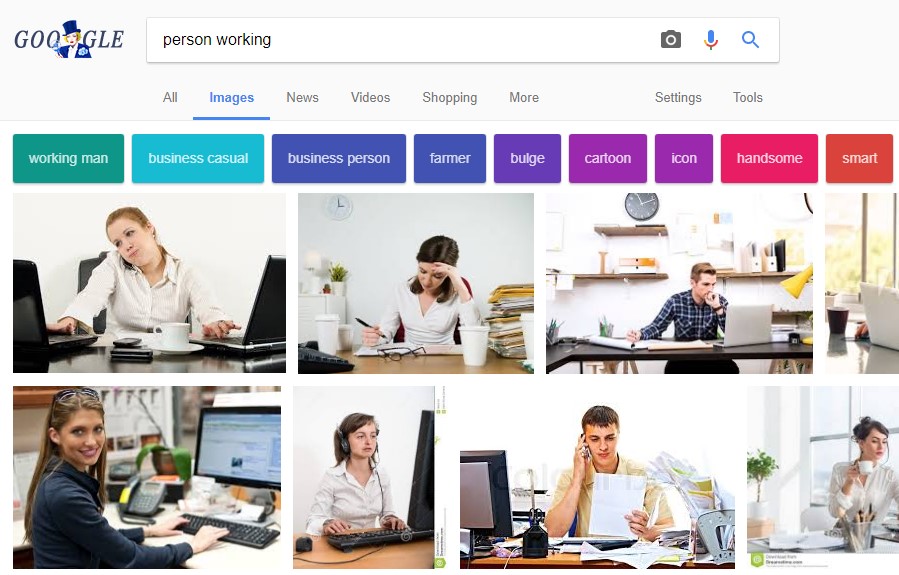10 illegal things you’re doing online without knowing it
Do you pride yourself on being a law-abiding citizen? People are often shocked to learn that many of the internet-based activities they engage in every day are illegal.
We’ll look at numerous law-breaking behaviors below. If some seem familiar, don’t worry; we’ll also give you alternative legal options.
10 illegal things you’re doing online without knowing it
1. Using Torrent services to grab copyrighted material
Torrent services allow you to tap into the resources other people have and download “chunks” of a file until your computer’s hard drive eventually contains the whole thing. Torrent services themselves are not illegal because you could potentially use them to get non-copyrighted material. But by relying on them to get the latest TV episodes or songs, you’re breaking the law.

What to do instead: Explore legal routes of obtaining the media you want. There is a growing number of subscription-based streaming services for movies, music, and TV shows. If cost is a concern, start putting aside a small amount of money to use specifically for legal means of watching and listening to your favorite things.
2. Sending spam emails
Judging by the number of spam emails you probably receive per day, you’d never think that sending them was illegal. You might even feel tempted to distribute some yourself, especially when trying to get people to pay attention to something you’re promoting. However, spamming is illegal per the CAN-SPAM Act of 2003. Despite its misleading name, it prohibits sending spam and enforces hefty fines.What to do instead: Consider encouraging people to follow your social media profiles. By doing that, they’re indicating they want to know more about what’s important to you. Keep in mind, though, that some federal courts ruled that the CAN-SPAM Act applies to social media too, so be careful to verify that people truly appreciate and value what you send.
3. Writing a fake news article to damage someone’s reputation
Fake news has become an especially prevalent topic since the most recent U.S. presidential election. Because it’s so commonplace, you might not think there’s any harm in writing a bogus story that could hurt a person’s reputation.
However, coming up with that kind of illegitimate news — along with producing any libelous online content — is illegal. Legislators have not yet banned fake news in the U.S, but major sites including Facebook are cracking down on it.
What to do instead: Put energy into boosting your reputation instead of worrying about other people’s statuses. Also, if you love appearing in the news, organize notable events in the community and write press releases to distribute to news outlets.
4. Using photos you found on Google
Like many people, you might think Google’s image search is one of the most convenient features around. Unfortunately, it’s not okay to freely use the pictures found through that method for a blog post, website, or another type of web-based content. Many are copyrighted, and by using them without permission from the owner, you’re breaking the law.
What to do instead: Depend on photos that use a Creative Commons license. There are many websites that compile such photos and allow you to search and download them for free.
5. Over-the-line pranking on YouTube
Spend just five minutes browsing YouTube after typing a search term like “humor” or “prank,” and it’s clear that people have varied opinions on what’s funny. Mike and Heather Martin learned that the hard way by when they were put on probation for allegations of child neglect. The couple had a YouTube channel that showcased questionable parenting techniques, including playing jokes on their youngsters that traumatized rather than amused them.What to do instead: Before launching a YouTube channel based on humor, run the idea by several friends and get their take. The Martins’ content outraged many people, and the individuals in your circle of friends will probably raise red flags if needed, too. If in doubt, choose another angle. Doing that is better than risking getting in hot water.
6. Making a website that’s not in accordance with a service agreement
Even though some unsavory internet activities fall into a “grey area” as far as state or national laws go, website hosting services probably make them illegal. The specifics vary, but if you have a site with threatening or obscene content, it’s probably a no-go. The website probably won’t stay live for long.What to do instead: For starters, don’t launch a site with threatening or obscene content! Also, read all the legal stipulations associated with a hosting service before you sign up for it. If you have questions along the way, get answers from an official representative rather than asking friends or making assumptions.
7. Impersonating a friend on social media
Most people have done it to joke around, but depending on where you live, it might be illegal to log in to the social media account of a person you know for impersonation. Nine states made online impersonation illegal, but there are some specifics regarding what’s against the law.For example, you cannot pretend to be someone else as a way to coerce a person into giving you money. An impersonation attempt that embarrasses an individual and harms his or her reputation is also barred.
What to do instead: Stick to publishing content on your own accounts. And resist the urge to take advantage of someone who fell asleep while logged into a service. Take the high road and realize that poking fun at someone isn’t worth damaging a friendship.
8. Being insensitive or unkind online
Because you typically don’t see people’s facial expressions while interacting with them online, it’s hard to know how they’ll react. If you bring up sensitive topics and keep mentioning them after someone tells you to stop, you might be participating in cyberbullying. Although there are no federal laws against it, there are 48 state-specific laws against harassing someone online.What to do instead: Remember that the battles a person deals with aren’t always obvious. If someone says that your words or actions online are causing them distress, listen up and change your approach. Offering an apology is another good step.
9. Collecting personal information about people younger than 13 without permission
Maybe you’re interested in opening a candy shop in your town or creating a web portal where young people can spend time safely. Those are both innocent activities, but if you use surveys or other means of freely gathering data from people who are under 13, you’re violating the Children’s Online Protection Act.What to do instead: Get a verifiable form of consent from children’s parents. You must also mention which information you’re using and how. If your online destination includes online gaming or a contest, limiting the information you take is another crucial step to stay within the law.
10. Extracting the audio from most YouTube videos
There are many websites where you can input the address of a published YouTube video, wait a few seconds, and get an audio file containing sounds from the clip. People often view those sites as solutions for getting music for free. After all, the selection available from YouTube is virtually limitless. But this practice is illegal when using it for copyrighted material.
What to do instead: Download the free version of Spotify. This streaming service’s library includes millions of songs, plus podcasts, video episodes and audiobooks. Who needs those illegal sites when you can explore all that content?
Ready to take this newfound knowledge out into the world? Hopefully, you’ll avoid the hassles of terminated accounts and shuttered sites due to unwittingly breaking the rules. Good luck, and stay clean!
Comments
Post a Comment
Andika igitekerezo cyubaka gusa!